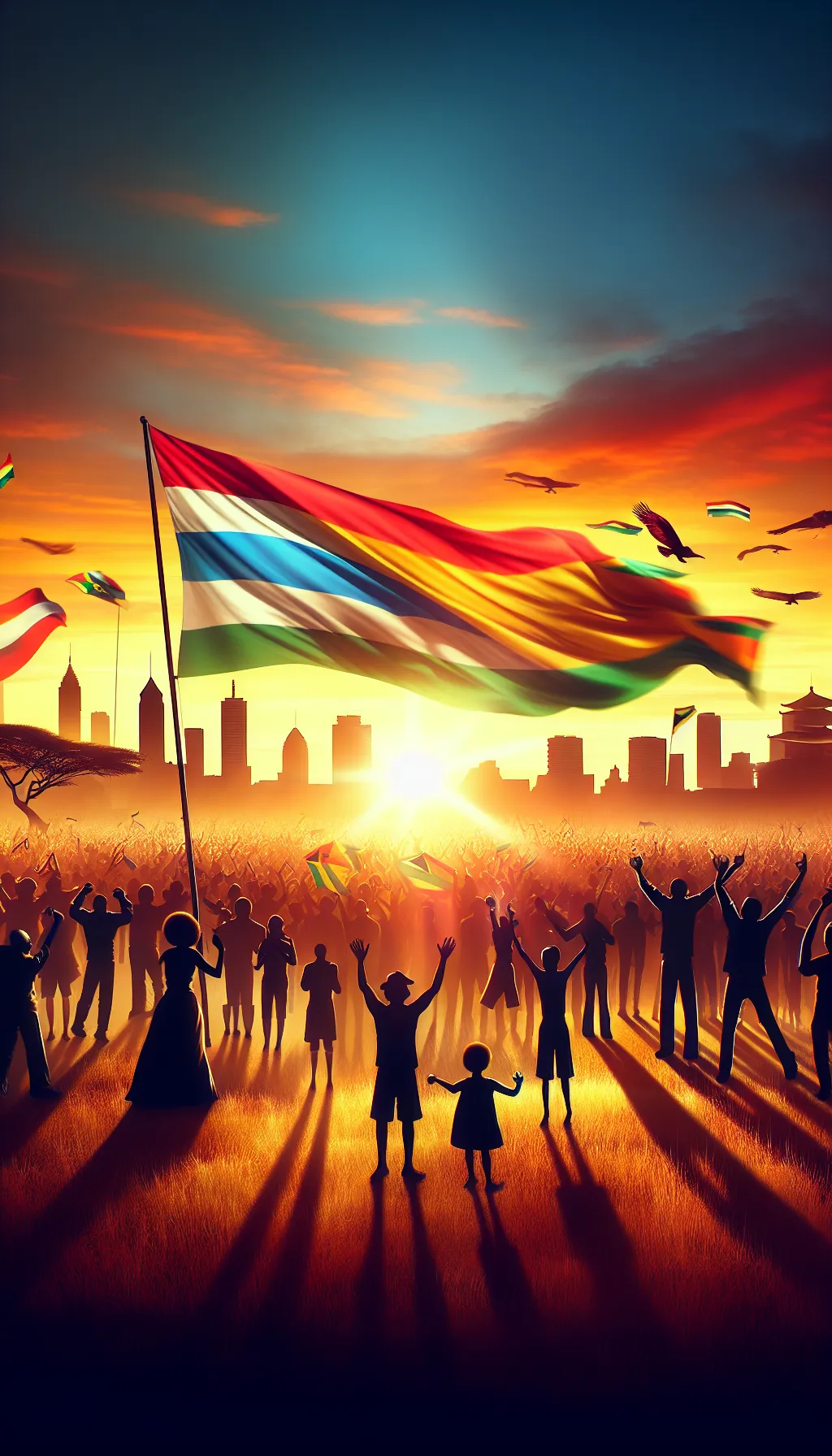Zimbabwe – The Dawn of Freedom: Zimbabwe's Independence Day, 1980
TLDR;
- Event: Zimbabwe gained independence on April 18, 1980, marking the end of nearly a century of British colonial rule.
- Struggle: The path to independence was marked by the Rhodesian Bush War, a brutal conflict between the white-minority government and black nationalist groups.
- Turning Point: The Lancaster House Agreement in December 1979 led to democratic elections, with Robert Mugabe’s ZANU-PF winning a landslide victory.
- Challenges: Post-independence, Zimbabwe faced significant challenges, including uniting a divided nation and addressing land redistribution and political tensions.
–
Story
As the first light of dawn broke over the African savannah on April 18, 1980, a new chapter in history was being written. The air was electric with anticipation and hope as thousands gathered in Salisbury, the capital of Zimbabwe, to witness a moment that had been decades in the making. The Union Jack was lowered for the last time, and the new Zimbabwean flag was hoisted, fluttering proudly in the morning breeze. The crowd erupted in cheers, tears of joy streaming down faces that had longed for this day.

For nearly a century, Zimbabwe, formerly known as Rhodesia, had been under British colonial rule. The struggle for independence was long and arduous, marked by a brutal guerrilla war known as the Rhodesian Bush War or the Second Chimurenga. The conflict pitted the white-minority government against black nationalist groups, leading to years of violence and suffering.
The turning point came in December 1979 with the Lancaster House Agreement, a peace settlement brokered in London. This agreement paved the way for democratic elections and ultimately, independence. On February 27–29, 1980, Robert Mugabe’s Zimbabwe African National Union-Patriotic Front (ZANU-PF) won a landslide victory in the country’s first free elections, with the results announced on March 4, 1980.
As the clock struck midnight on April 18, 1980, Zimbabwe was born. The celebrations were not just about the end of colonial rule but also a hopeful beginning for a nation eager to forge its own identity and destiny. The world watched as Zimbabwe embarked on its journey of self-determination, a beacon of hope for other African nations still under colonial rule.
Yet, the path ahead was fraught with challenges. The new government faced the daunting task of uniting a country divided by years of conflict and building a stable economy. Issues such as land redistribution and political tensions, particularly between ZANU-PF and Joshua Nkomo’s ZAPU, became defining challenges in the early years of independence, foreshadowing later conflicts. The legacy of colonialism would linger, but the spirit of independence ignited a flame of resilience and determination in the hearts of Zimbabweans.
–
| Would a different approach to post-independence governance have changed Zimbabwe’s trajectory? |